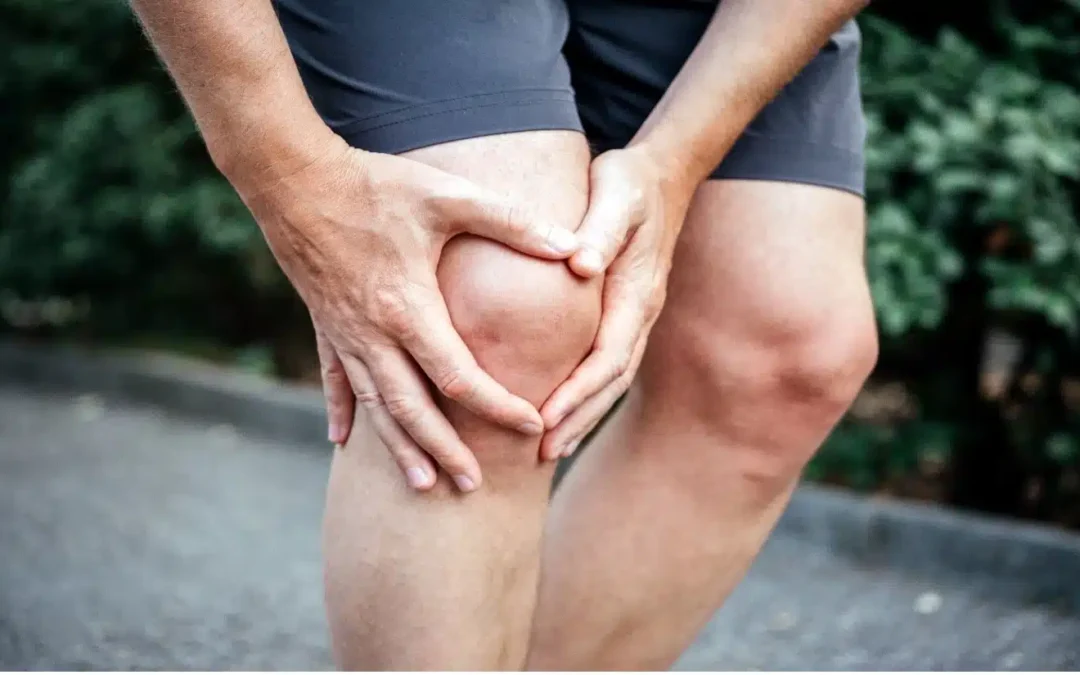Joint pain limits your participation in life. It impacts daily activities and restricts your choices.

Blog > Avoid Knee Replacement
Chronic knee pain affects millions of people in the United States. Around 850,000 knee replacements are performed each year in the U.S., especially on patients with osteoarthritis. However, some doctors believe the benefits of knee surgery might be oversold and that many surgeries could be avoided. A study published in the British Medical Journal found that knee replacements had minimal effects on quality of life in patients with less severe osteoarthritis.

Knee replacements are often reserved as a last resort for managing knee pain when conservative treatments like medications, lifestyle modifications, weight loss, physical therapy, injections and non-surgical procedures fail to help. Knee replacement is major surgery, and you might need to spend many months in recovery. Also, some people complain of persistent knee pain years after surgery.
So, is knee replacement worth considering? If you have exhausted every other option, it may be. If you haven’t, consider QC Kinetix: We offer regenerative therapies that are an effective alternative to surgery for reducing knee pain.
In this article, we’ll explore the drawbacks of knee surgery and natural alternatives that can be very effective in reducing knee pain.
Also, knee replacement is not a permanent solution. Over time, implants may wear out and require revision surgery.
People with knee pain want to avoid replacement surgery, and for many, surgery might not even be the right choice.
Here are some reasons to avoid knee replacement surgery:
As with any major surgery, knee replacement could lead to life-threatening complications such as infection and blood clots. The surgery can damage the adjoining muscles, nerves and blood vessels. It can also increase the risk of heart attacks and stroke, especially in people over 60.
For successful recovery, physical therapy is crucial. Physical therapy helps to strengthen knee muscles and improve mobility without putting too much stress on the new implant.
You are expected to experience some amount of pain for the first three or four months after surgery. Some people, however, can experience chronic pain for years after surgery. This persistent pain can be a result of the implant loosening or a deep infection.
On average, the lifespan of an implant used for knee replacement is about 15 to 20 years, so a person who undergoes replacement at 45 or 50 may need revision surgery at 65 or 70. Therefore, doctors generally avoid knee replacements for young people. Secondly, if you have a condition like severe osteoporosis, severe diabetes or high blood pressure, your surgery would be delayed until your underlying condition is managed.
Implants are made of metal or high-grade plastic. Implant failure can have multiple reasons, including an allergic reaction to the metal in the implant, an improperly placed implant, or muscles and other knee stabilizers being too weak to support the implant. In case of an implant failure, revision surgery is the only solution.

Natural therapies provide long-term relief from knee pain for many people. If you’re suffering from chronic knee pain, you owe it to yourself to explore all available options.

It’s important to lessen the stress on the knee joint in order to reduce knee pain. Exercise and physical therapy help improve the knee joint’s strength and flexibility. Three types of exercises help protect the knee:
Knee strengthening exercises: The knee joint is surrounded by two large muscle groups: the quadriceps running along the front of your thigh that help to straighten your knee and the hamstrings running along the back of your thigh that help to bend your knee. Strengthening these two muscle groups is important for supporting the knee joint and preventing injuries. Exercises such as squats, lunges and bridges help to strengthen these muscles. Studies have also shown that strengthening exercises help to improve bone strength and slow bone and muscle loss caused by aging.
Knee flexibility exercises: To function at their best, muscles should be of adequate length. With arthritis, the knees become stiff, and due to lack of movement, the muscles become short. Stretching the quadriceps and hamstrings reduces muscle tightness and improves the mobility of the knee joint.
Aerobic exercise: Although many believe exercises like jogging and brisk walking cause injury to the knees, this isn’t true. Low-impact aerobic exercises or cardio do not damage the knee; they actually help improve circulation and help your knee cartilage receive oxygen-rich blood. In fact, according to the Centers for Disease Control and Prevention (CDC), adults with arthritis should walk for at least 150 minutes a week or do a vigorous-intensity activity like cycling at 10 mph or faster.

There is a wealth of research that shows physical therapy works well to reduce knee pain. Every person’s knee pain is different, so a physical therapist (PT) will design a custom rehabilitation program based on the cause of the pain.
A PT can help you to reduce knee pain through:
Education: A PT can teach you about measures to help reduce pain, such as beneficial exercises, activities to avoid and proper footwear.
Treatment: A PT may use treatments such as electrotherapy and manual therapy to relieve your pain.
Strength and flexibility exercises: A PT can develop a customized exercise program and supervise you while you perform the exercises to ensure that you are not putting too much stress on your knees.
Advice on supportive aids: A PT can also suggest walking aids or braces to help support your knees and aid in walking.

It’s important to maintain a healthy weight to prevent knee damage. When you walk on level ground, the stress on your knees is around one and a half times your body weight. The stress is around two to three times when you go up and down stairs and four to five times when you bend your knees to pick something up. In addition, excess body fat releases proteins that cause inflammation, contributing to arthritic joint inflammation.
Therefore, losing weight is extremely useful for preventing knee pain. Losing even five to 10 pounds goes a long way toward reducing the stress on your knee joint. Even if you already have knee osteoarthritis, reducing weight slows its progression.
Our state-of-the-art natural biologic treatments are a great alternative to knee surgery and addictive pain medications. Our therapies have transformed the lives of people who have spent years in debilitating pain.
We understand that some knee problems need surgery, but many people with knee pain can avoid going under the knife. Surgery comes with risks and added pain and requires time to recover, so it’s worth it to explore your options.
When you schedule a free consultation at QC Kinetix, our medical team will evaluate your condition and current needs. If we find that you would benefit from our therapies, we’ll discuss your options with you in detail.
Our concierge approach to medicine puts our patients at the center of everything we do. We’ll ensure that you are supported and well-informed at every step of your treatment. We’ll provide you with the treatment you deserve and do everything to make you feel relaxed throughout your care.
Contact QC Kinetix today to find out about our alternatives for knee pain relief!

Joint pain limits your participation in life. It impacts daily activities and restricts your choices.


QC Kinetix Joint & Bone Health supplements help your body to repair and renew injured joint tissues, including cartilage, ligaments, and tendons, while reducing inflammation of the bursae. Unlike steroids or pharmaceuticals, our supplements for joints work with your body to promote healing.
Supplements can boost your overall joint health as part of a general fitness program. However, they are particularly valuable for treating damaged or inflamed and painful joints. The Arthritis Foundation finds that joint health supplements show promise for relieving pain, stiffness, and other symptoms of arthritis.

*Fill out the form below, and an expert will reach out to you shortly. All fields must be completed.
*Please allow 30-60 minutes of allotted time to meet with a specialist to determine if you are a candidate for our services. Exams are included and are complimentary.
